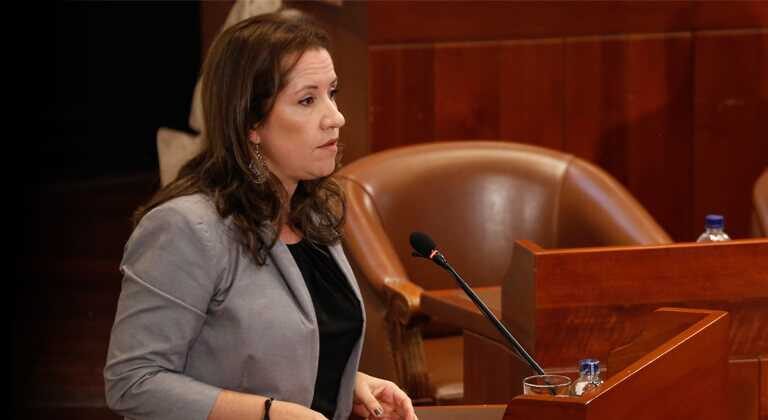On May 16, Vienna hosted a meeting of the Human Dimension Committee of the OSCE Permanent Council on the topic “The right to freedom of peaceful assembly in digital times”.
At the initiative of the Mission of Ireland to the OSCE, which currently chairs the Committee, the OSCE invited a representative of the Crimean Tatar Resource Center (CTRC) to the event, in particular in view of the active presentation by experts of the CTRC and our Association of human rights violations during the side event of the OSCE Supplementary Meeting on the Human Dimension April 24th.
CTRC expert Lyudmila Korotkikh took part in the meeting of the Committee and during it, among other things, presented an opinion developed by the Association’s expert Alexei Plotnikov regarding the legal qualification of the aggressor’s dispersal, by military personnel, with the use of weapons and violence, against of peaceful rallies in Kherson and Nova Kakhovka in the spring of 2022.
The specified expert opinion was worked out at the request of the Kherson regional prosecutor’s office, which provided a separate permission to the Association for the presentation of these materials by CTRC. The document states that the said dispersal of rallies is not only a violation of human rights, but also a war crime and, at the same time, an aggressor’s integral systemic policy in the occupied territories. The theses of the conclusion aroused great interest on the part of the participants in the meeting of the Committee.
As the expert Lyudmila Korotkikh points out, the great interest of the students in the meeting of the Committee was in the possibility of the Crimean Tatars to hold collective events and persecution by the occupiers for online activity, and that “it was nice to once again hear words of support from representatives of different countries of the world and their assurances that they are together with Crimean Tatars and with Ukraine”.
The expert added that the cases described by the occupiers of the right to freedom of association and peaceful assembly of the Crimean Tatars are not isolated, it is also a systematic practice aimed at suppressing any public activity of representatives of the indigenous people of the Crimea, which significantly limits the ability to preserve and develop the people, since its representatives live in constant fear of being punished.







